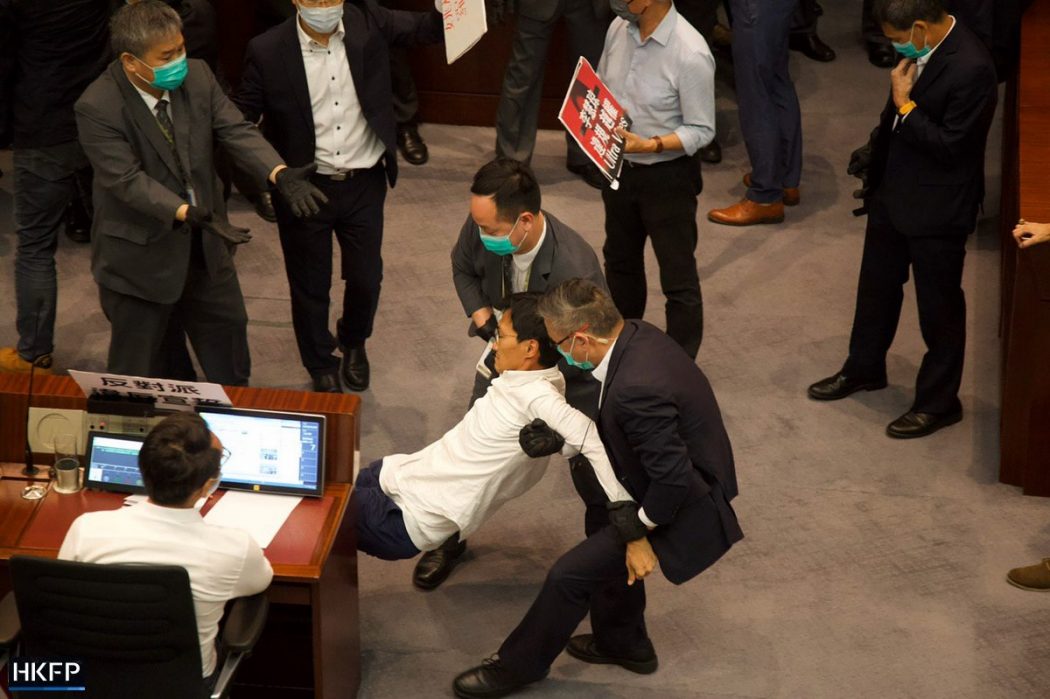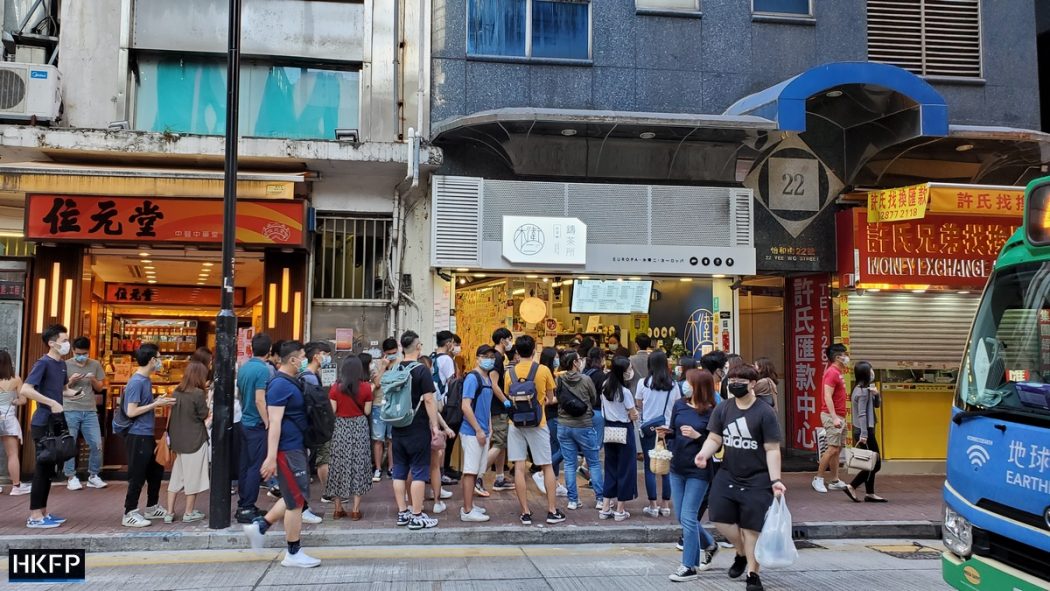By Calum Muirhead
As the coronavirus pandemic begins to subside and life slowly returns to normal, Hong Kong’s pro-democracy movement is showing no signs of going away.
Despite heavy-handed efforts by the Beijing government to interfere in the city’s constitutional framework, arrest prominent democratic activists and, more recently, push pro-Beijing lawmakers to force their rivals out of the Legislative Council, the relaxation of quarantine restrictions and lowering infection rates have brought protesters back onto the streets almost immediately. This indicates that the city will face another volatile summer like last year’s.

No one will be more nervous about the resumption of protests than Hong Kong’s business community, who are still reeling after the pandemic dealt a heavy blow to an economy already shaken by last year’s unrest. The city now faces its steepest recession since records began in 1974.
While executives in boardrooms across the city could consider calling for cooler heads to prevail amid the turmoil, it is clear that the only way for any economic certainty to be restored is to support the pro-democracy movement and its five demands.
If Hong Kong’s business elite prize stability and calm, as their prior overtures in the press seem to indicate, then attempts to prop up the status quo and, by extension, the creeping dominance of Beijing over the city’s affairs, stand in complete opposition to this goal.

We know that Chinese leader Xi Jinping’s regime has already sought to reshape the composition of corporate boards in line with its political sensibilities. And this will only accelerate as the Chinese Communist Party (CCP) exerts more control over Hong Kong’s governance.
The resignation last year of Cathay Pacific CEO Rupert Hogg, after the flagship airline was lambasted by Beijing for failing to fire employees who participated in last year’s protests, serves as a prime example of this subterfuge.
Companies also find themselves vulnerable to political disputes extending outside of Hong Kong affairs, with HSBC CEO John Flint abruptly stepping down last August.
While the move has not been officially connected to political pressure, Flint’s resignation came mere months after the bank clashed with Chinese officials over its cooperation with US authorities in the prosecution of Huawei CFO Meng Wanzhou.

Given that even multinationals are not immune from Beijing’s meddling, the idea that local businesses will be allowed to operate freely despite continued CCP dominance over Hong Kong affairs, particularly if they happen to stray from the party line, is ignorant at best and denialism at worst.
Hong Kong’s idiosyncratic electoral system also places the business community in jeopardy through its use of functional constituencies, which provide foreign, corporate and special interests with direct influence over the city’s policymaking.
Not only is this system a gross violation of democratic norms, (for instance, UK insurance giant Prudential holds voting power equivalent to that of 6,000 geographic voters), it also provides large businesses with cartel-like political leverage over smaller competitors, undermining the free market reputation that attracted many firms to Hong Kong in the first place.

The inequity of this system is further highlighted by the hypocrisy of Beijing, which derides participants in Hong Kong’s “Yellow Economic Circle” for “violating” free market principles while simultaneously propping up an electoral system that serves to undermine those same ideals.
If companies truly believe in a free market, they must recognise that the introduction of universal suffrage through geographical constituencies is one way to rebalance the playing field.
The final, and perhaps most damning, concern for businesses seeking to maintain Hong Kong’s status quo is the erosion of the Rule of Law.
A report from NGO Hong Kong Watch in February said trust in the city’s courts and common law legal system is “key to the success of Hong Kong as an international financial centre,” setting it apart from the opaque “justice” doled out on mainland China.

However, with Beijing tightening its grip, Hong Kong’s courts are already becoming subject to pervasive political interference, leading to the imprisonment of pro-democracy lawmakers and activists. If the city’s business elite find themselves similarly targeted they could easily see their assets stripped away under the guise of politicised “anti-corruption” efforts if they fail to follow CCP doctrine.
With these factors in mind, the consequence of Hong Kong’s business leaders attempting to uphold the status quo again may be to destroy the very foundations upon which their own empires are built.
In such turbulent times, it is clear that companies now face a choice; either support the protest movement and bolster Hong Kong’s liberal credentials with their own political and economic power, or place their hopes for stability with the authorities in Beijing.

With mainland-directed governance having already helped to tank the economy, the latter option may be far more disastrous for the bottom line.
Calum Muirhead is a London-based financial journalist and a coordinator of We Are HKers, a bilingual media project that documents the stories of Hong Kong people and those with a connection to the city. He is also involved in pro-democracy activism and has worked with human rights organisations such as Hong Kong Watch.
